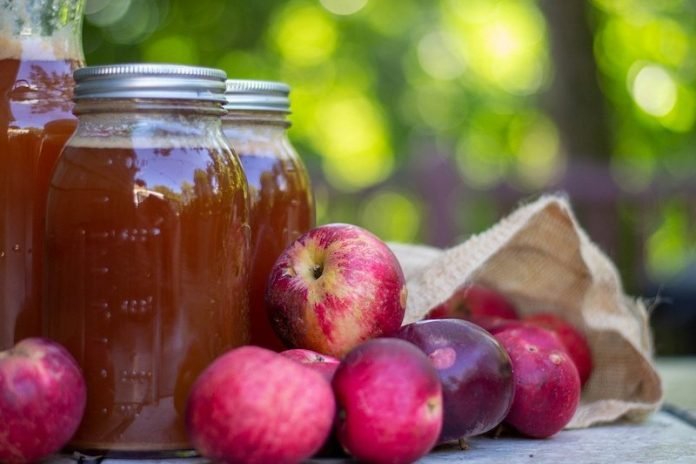
In a new study, researchers found drinking apple cider vinegar could help reduce blood sugar and blood cholesterol.
High blood cholesterol and high blood sugar are big risk factors for heart disease, which, subsequently, represents a leading cause of early mortality, worldwide.
In the study, the team aimed to review the effect of apple cider vinegar on blood sugar and cholesterol levels in adults.
They conducted a systematic search was conducted in electronic databases, including Medline, Scopus, Cochrane Library, and Web of Knowledge, from database inception to January 2020.
All clinical trials which investigated the effect of apple cider vinegar on cholesterol and blood sugar were included.
Overall, nine studies, including 10 study groups, were included in this review.
The team found that apple cider vinegar consumption strongly reduced total cholesterol, fasting blood sugar, and HbA1C concentrations.
They also found a big reduction of blood sugar and blood cholesterol in a subgroup of people with type 2 diabetes, those who took ≤15 mL/day of apple cider vinegar, and those who consumed apple cider vinegar for > 8-weeks, respectively.
Furthermore, apple cider vinegar consumption strongly decreased blood sugar levels in a group drinking apple cider vinegar for > 8-weeks.
These findings suggest a strong benefit of apple cider vinegar consumption to blood sugar and cholesterol levels.
For more information about how apple cider vinegar benefits people with diabetes, check this video:
If you care about blood sugar, please read studies about drinking this at breakfast may lower blood sugar throughout the day and findings of a new way to reverse high blood sugar and muscle loss.
For more information about blood sugar health, please see recent studies about common stomach drugs may improve blood sugar control in diabetes and results showing that common drug for blood sugar control may treat heart failure.
The study is published in BMC Complementary Medicine and Therapies and was conducted by Amir Hadi et al.
Copyright © 2022 Knowridge Science Report. All rights reserved.



